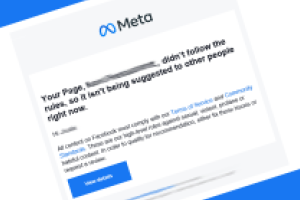The goal of search engine optimization (SEO) is to elevate your website from the depths of obscurity to the top of Google results. However, as with any hunt for stardom, there are always those looking to take shortcuts. In the world of search engines, the two competing approaches to maximizing SEO are called white hat and black hat SEO – one being the moral method of gaining visibility and the other being an exploitation that’s ineffective in this age of advanced algorithms. To understand how older SEO models might be hurting your business, it’s time for a direct comparison of black hat vs. white hat SEO.
What is Black Hat SEO?
Black hat SEO attempts to cheat search engine algorithms to make a website more visible. This approach is based on historical exploits, which were effective back when search engines were in their infancy. Its outdated techniques include:
- Keyword Stuffing: Keywords are pivotal to making a website discoverable. Stuffing as many keywords into a page as possible (sometimes hiding them using different colored fonts) used to be a viable means of ranking higher on search engines.
- Paid Links: When websites link back to yours, it’s seen as a vote of confidence by search engines. The more links you have out in the wild, the better your SEO ranking. A black hat approach relies on paying websites to host inbound links.
- Private Blog Networks: Creating a mass network of faux websites that link back to your main website used to be an effective yet unethical way to increase your ranking on search engines.
Unfortunately for those relying on black hat SEO, Google has grown wise of these “SEO hacks.” If caught committing these acts – addressed in Google’s webmaster guidelines – your website is in danger of being penalized or removed entirely from Google’s index.
What is White Hat SEO?
White hat marketers focus on making pages primarily for users, with a secondary focus on SEO. It creates content relevant to the users’ interests. These marketers achieve all that black hat SEO attempts to by implementing the following ethical strategies:
- Relevant Keywords: Experienced marketers use SEO research tools to find the most topical keywords. This not only optimizes your content but makes it easier for visitors to find the solutions to their problems.
- Enhanced Metadata: Meta titles, descriptions, and tags not only give searchers a general idea of the content behind the link, but they act as points of reference for SEO, especially when keyword-rich.
- Resourceful Links: Backlinks (incoming hyperlinks from other websites) and outbound links (links directing users to relevant pages) are vital to ranking. Professional marketers know how to best utilize links without resorting to shady business practices.
Most important of all, white hat SEO focuses on quality content. This means expanding upon meaningful content, revising outdated material, and inserting relevant images and videos.
What to Do If You’re Penalized from Black Hat SEO
If Google has deranked or removed your website for trying to trick its algorithm, the penalty can last from six months to up to two years. Even after the penalty expires, if your website still shows signs of exploitative practices, it’ll continue to be penalized. To reinstate your website into their index sooner, you can submit a reconsideration request. To successfully pass this request, though, you must show you’ve ditched the black hat SEO practices and replaced them with constructive, quality content.
It’s a no-brainer when it comes to the debate between black hat vs. white hat SEO. If you want to provide content that will have consumers truly invested in your brand, finding a marketing agency that masters in white hat SEO is key. At Vision, we’re experts when it comes to search engine marketing and can build a website with quality content devoted to your consumers. If you’re struggling to increase your website’s visibility, contact us today.




